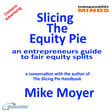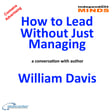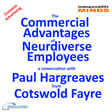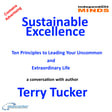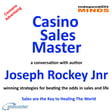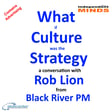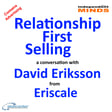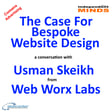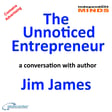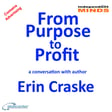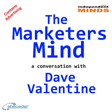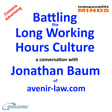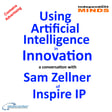
Using AI in Marketing – a conversation with David Patrykowski
When the bad news hit David Patrykowski knew that he could have avoided the agony of almost losing his business if he had taken notice of, and understood the data that his business was generating.
Like many entrepreneurs David had simply got on with the work.
Now, David understands all the data that his business creates and has built a business to help other businesses understand their data and utilise it so that managers can make better decisions.
In this episode of the Abecederpodcast The Independent Minds, David explains to host Michael Millward the products his company has created and the benefits they will provide for users.
David and Michael discuss how marketers are using Artificial Intelligence (AI) to enhance their decision making, and how over use of AI can have a negative impact on customer relations.
During their conversation David raises concerns about how marketing and IT departments interact, and the problems this can create for both organisations and their customers.
Find out more about both Michael Millward, and David Patrykowski at Abeceder.co.uk
The Independent Minds is made on Zencastr, because as the all-in-one podcasting platform, on which you can create your podcast in one place and then distribute it to the major platforms, Zencastr really does make creating content so easy.
If you would like to try podcasting using Zencastr visit zencastr.com/pricing and use our offer code ABECEDER.
Matchmaker.fm If you are a podcaster looking for interesting guests or if like David, you have something interesting to say Matchmaker.fm is where matches of great hosts and great guests are made. Use our offer code MILW10 for a discount on membership.
Travel
David is based in Coventry, in Warwickshire. Members of the Ultimate Travel Club, can travel to Coventry at trade prices on flights, hotels, trains, package holidays and all sorts of other travel purchases. You can become a member at a discounted price by using my offer code ABEC79 when you join-up.
Fit For Work Look after your health and you will be fit for work.
It is always a good idea to know the risks early so that you can take appropriate actions to maintain good health, that is why we recommend The Annual Health Test from York Test.
York Test provides an Annual Health Test. An experienced phlebotomist will complete a full blood draw at your home or workplace. Hospital standard tests covering 39 different health markers are carried out in a UKAS-accredited and CQC-compliant laboratory.
A Personal Wellness Hub gives access your easy-to-understand results and guidance to help you make effective lifestyle changes anytime via your secure, personal Wellness Hub account.
Visit York Test and use this discount code MIND25.
Three the network Visit Three for information about business and personal telecom solutions from Three, and the special offers available when you quote my referral code WPFNUQHU.
Being a Guest
If you would like to be a guest on The Independent Minds, please contact using the link at Abeceder.co.uk.
We recommend that potential guests take one of the podcasting guest training programmes available from Work Place Learning Centre.
We appreciate every like, download, and subscriber.
Thank you for listening.
